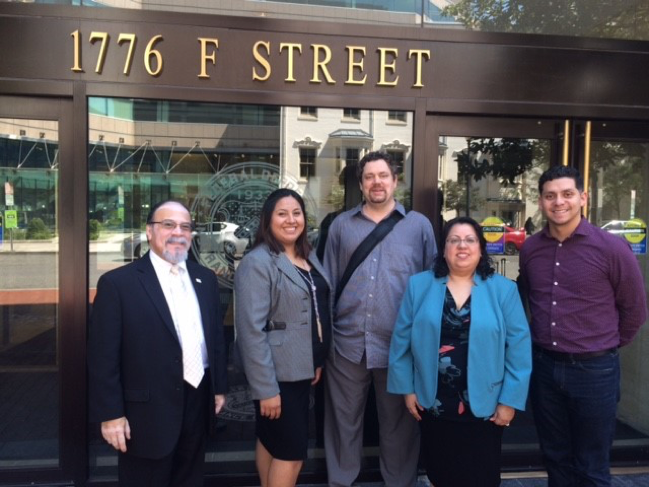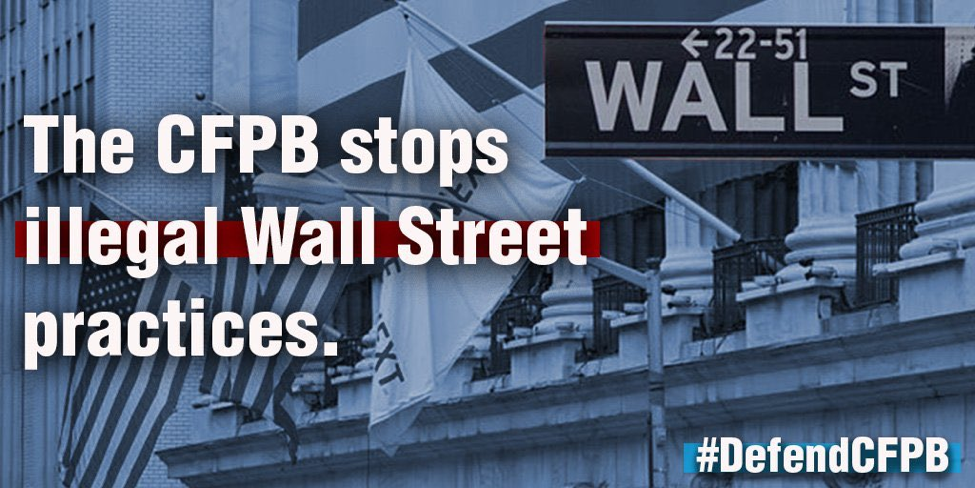The Consumer Financial Protection Bureau Turns Five!
By Renato R. Rocha, Policy Analyst, Economic Policy Project, NCLR
 Low- and moderate-income families suffered disproportionate losses of wealth during the Great Recession. Under the conditions that existed before the passage of the 2010 Dodd-Frank Wall Street Reform and Consumer Protection Act, Latinos and other communities of color were not adequately protected from unfair and deceptive financial practices. The lack of oversight allowed for conditions that were ripe for consumer exploitation. NCLR and other civil rights and consumer advocates pushed for an agency that would put families first. The creation of the Consumer Financial Protection Bureau (CFPB) was one of the hallmark achievements of Dodd-Frank.
Low- and moderate-income families suffered disproportionate losses of wealth during the Great Recession. Under the conditions that existed before the passage of the 2010 Dodd-Frank Wall Street Reform and Consumer Protection Act, Latinos and other communities of color were not adequately protected from unfair and deceptive financial practices. The lack of oversight allowed for conditions that were ripe for consumer exploitation. NCLR and other civil rights and consumer advocates pushed for an agency that would put families first. The creation of the Consumer Financial Protection Bureau (CFPB) was one of the hallmark achievements of Dodd-Frank.
Today we celebrate the fifth anniversary of the CFPB’s establishment—and what a productive five years it has been. Despite being an infant by federal agency standards, the CFPB has made considerable strides toward making financial markets work for both consumers and providers. Since the inception of the Bureau, the CFPB’s enforcement actions have brought $11.7 billion in relief to more than 27 million consumers.
It has handled more than 900,000 complaints from consumers on a range of financial services and products—from credit reporting and debt collection to mortgages and vehicle, payday, and student loans.
To better serve diverse communities, the Bureau created a Spanish-language website, which includes nearly a thousand AskCFPB responses, and recently launched Spanish-language Twitter and Facebook accounts.
These successes are critical for Latinos and other communities of color, who are still struggling to recover from the recession. They are also essential to our nation’s economic well-being: Alongside the growth of the Hispanic population, expected to be 30% of the total U.S. population by 2060, the purchasing power of the community is growing, currently estimated at $1.5 trillion. Full financial access and inclusion for low-income and minority communities is in the economic interest of all Americans.
Particularly important for communities of color is being able to access financial services without being targeted or profiled. In an effort to make the financial marketplace more equitable, the CFPB has filed about a dozen actions against providers that demonstrated clear evidence of restricting access to—or charging minority borrowers more for—products and services. As a result of these actions, approximately $30 million has been assessed in civil money penalties and more than $400 million in restitution has been ordered to approximately 1.4 million affected minority consumers. Just last month, the CFPB announced an action against BancorpSouth bank for discriminatory mortgage lending practices toward Blacks and other minorities. The action requires BancorpSouth to pay $2.78 million to minority consumers who were unlawfully denied or overcharged for loans.
In five short years, the CFPB has started to rein in discriminatory practices in the financial marketplace, helping to put families on a path to financial security. Yet as we celebrate all that CFPB has done to help consumers, we also anxiously await the Bureau’s forthcoming rule on arbitration, payday lending, prepaid accounts, overdraft, and debt collection—areas where strong protections are sorely missing for Latinos and all consumers.
Over the next five years, ensuring that CFPB has the full authority to continue their important work on behalf of consumers will be essential to ensure that low-income families and communities of color have equal opportunities to build and maintain wealth for this generation and the next.



